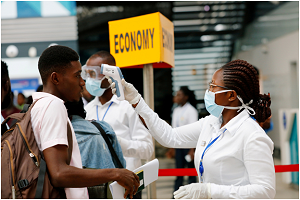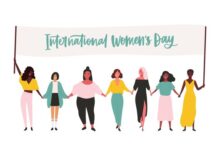
Like any untested and unchallenged defence systems of nations that crumbled in times of war, the human body without history of exposure to disease-causing agents (pathogens) such as viruses, bacteria and plasmodium, whether through natural (infection) or artificial (vaccination) means, exhibits its greatest vulnerability during disease outbreaks. The adaptive immune system of humans which ensures that infectious agents (pathogens) entering the body are neutralized or eliminated through the use of neutralizing antibodies (humoral immune system) or “cell eaters” (cell-mediated immune system) is only activated after the body’s first and effective encounter with pathogens. The resulting immunized body responds by elevating neutralizing antibodies to fight any future infections by same or similar pathogens. The memory of this defence against pathogensmay last for a lifetime, depending on the type of pathogen or disease.
It is well acknowledged in many historical and medical accounts that the European colonies who settled in the West Africa, specifically in Gold Coast (Ghana), could survive onlyfor one year upon arrival on the continent due to heavy burden of infectious diseases, principally caused malaria. However, the situation was quite different among the African populations living at the coastalregions and the mainland. There are records of population explosions among some West Africans communities in 16th, 17th and 18th centuries despite the widespread wars and diseases at the time. The high survival rates of African black race compared to their European counterparts on the continent was mainly due to the stronger immunity of the Africansagainst the prevailing infectious diseases to which the Europeans, unfortunately, had not been exposed. The enslaved Black Africans in their millions transported to the New World (Americas), and despite the harsh conditions and disease burden, survived largely due to their strong natural adaptive immunity.
The effect of Severe Acute Respiratory Syndrome Coronavirus 2 (SARS-CoV2), the virus that causes Coronavirus disease-2019 (COVID-19), on the African continent has been significantly milder compared to other continents especially in Europe and America. This disparity could be attributed to a number of factors such as temperature, proportion of aging population, and nutrition. Racial background can, however, not be very important as Black Africans living in countries seriously affected, for example in USA and UK, have not been spared either. On the other hand, what seems convincingly important in the disease manifestations across various human racial populations is the exposure level of individuals to the virus or its similar strains. African continent is by far the highest in terms of richness in microbial populations and diversity. Thus, for every infectious microorganism or pathogen, there is a high chance of detecting same or similar forms on the African continent. The Africans also live in closer proximity with one another and therefore their exposure level on the continent to various forms of pathogens is extremely high. Where the resultant pathogenic exposure is mild to moderate, the exposed individuals tend to trigger immune response which is maintained to deal with future deadly infections from the same or other strains of the pathogen (e.g. virus, bacteria, plasmodium or other microbes).
In most African countries and in Ghana in particular, adherence of people to various COVID-19 protocols issued by health experts and governments, have been extremely poor. This has led to wide community spread of the infection. Experts estimate that prevalence of COVID-19 most African communities to be three (3) to six (6) in every ten (10) persons sampled/tested. Fortunately, about 95% of all persons (i.e. about 9 in every 10 persons) who contract the Coronavirus disease on the African continent are completely asymptomatic. The remaining 5% develop mild to moderate symptoms of the disease; whilst a fraction of this having underlining disease conditions such as cardiovascular disease, hypertension, diabetes and asthma become severely ill or die from the disease. The increasing spread of the virus on the African continent with its mild effect is therefore proving to be a natural protection for the people on the continent especially in this era when there is no approved vaccine. The failure of the people to isolate themselves from the SARS-CoV2 virus, thus aiding its wild spread in communities has, however, become unintended benefit to people of these poor nations who have no available technologies to develop vaccines or insulate themselves. This is indeed an unintended benefit.
Recent observation made by American medical researchers on a fishing boat carrying over 100 fishermen revealed that, about 80% of all the people on the boat became infected with the Coronavirus. This shows how impossible one is able to prevent Coronavirus infection by simple wearing of face masks, or washing of hands, or by maintaining a social distance. Among them were people who had earlier recovered from COVID-19. The results established that the people who had earlier recovered from COVID-19 did not get re-infected on the boat. Their blood samples were found to contain high levels of neutralizing antibodies that protected them against future Coronavirus infection even when they were exposed to the pathogen. It is hypothesized that majority of Ghanaians, and for that matter Africans, have already gotten exposed to the Coronavirus and thus may be living with high levels of the neutralizing antibodies. This feature can be checked in the population by the use of immunoassays such as the use of Rapid Diagnostic Testing (RDT) kits for COVID-19. This test is not relevant for detecting persons living with the virus at the time of testing, but it establishes the extent of population exposure to the pathogen and therefore immunized (protected). This is good for infection surveillance and control. It must, however, be noted that, effective immunization against infectious diseases whether by vaccination or natural infection is hampered by many factors including old age and people with chronic diseases. A vaccineconsists of part(s) of the pathogen artificially developed and injected into the human body with the expectation that its eventual immunization strength and duration would be better than the natural exposure to the same pathogen. Similarly, the transfusion of convalescent plasma of recovered COVID-19 patients (containing Coronavirus neutralizing antibodies) into newly infected patients have been found to hasten recovery from the disease.
It is therefore understandable that nations that have technological means to insulate their people completely from Coronavirus immediately experience spikes or new waves of infection (of people not exposed to the virus) once the restrictions are relaxed. These populations may be lacking immunity against the Coronavirus or its similar strains due to reduced exposure of the people to microbes in their environment. Microbial populations in temperate countries are relatively low due to the harsh cold temperatures and years of sustained treatment of people and disinfection of the environment from microbial residues. People in such territories mostly obtain their exposure to microbes through vaccination as natural exposures to microbes is nearly non-existent. This is fundamental explanation to the lower prevalence of microbial cancers inAfrica compared to their Western counterparts. It has already been demonstrated that in Ghana, the prevalence of Coronaviruses (not the novel strain) in children under the age of 12 is nearly 10%. This shows the extent of exposure of Ghanaians to zoonotic Coronaviruses even before the advent of the novel Coronavirus (SARS-CoV2).
While nations intensify their efforts to develop vaccines for global application to eliminate the COVID-19 pandemic, governments especially those in Africa are advised to direct their efforts to protection of the aged and the most vulnerable people in society such as people with chronic diseases. These persons havelow immune responses to infectious diseases, and correspondinglyhaving low recovery rates. However, majority of the population who are mainly youthful are relatively unaffected by the Coronavirus. Thus efforts should be aimed at getting the healthy people back to work to avoid catastrophic collapse of the economy with its consequent hunger and imminent deaths.
By Prof. Peter Twumasi (Biochemist/Biotechnologist)





